| Article ID | Journal | Published Year | Pages | File Type |
|---|---|---|---|---|
| 954847 | Social Science & Medicine | 2006 | 13 Pages |
Economic rationality is traditionally represented by goal-oriented, maximising behaviour, or ‘instrumental rationality’. Such a consequentialist, instrumental model of choice is often implicit in a biomedical approach to health promotion and education. The research reported here assesses the relevance of a broader conceptual framework of rationality, which includes ‘procedural’ and ‘expressive’ rationality as complements to an instrumental model of rationality, in a health context.Q methodology was used to derive ‘factors’ underlying health and lifestyle choices, based on a factor analysis of the results of a card sorting procedure undertaken by 27 adult respondents with type 2 diabetes in Newcastle upon Tyne, UK. These factors were then compared with the rationality framework and the appropriateness of an extended model of economic rationality as a means of better understanding health and lifestyle choices was assessed.Taking a wider rational choice perspective, choices which are rendered irrational within a narrow-biomedical or strictly instrumental model, can be understood in terms of a coherent rationale, grounded in the accounts of respondents. The implications of these findings are discussed in terms of rational choice theory and diabetes management and research.
